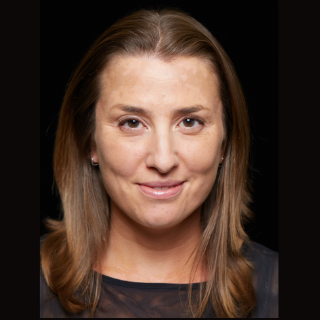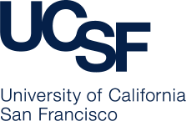An Interview with a Brain Health Registry Scientist
Haga clic aquí para leer este boletín en español.
Dr. Rachel Nosheny is a co-investigator on the Brain Health Registry (BHR). She has pioneered the BHR Caregiver and Study Partner Portal. This tool allows BHR participants to invite a study partner who knows them well, and who can answer questions about changes in their brain health over time.
This year, Dr. Nosheny is leading an expansion of the California Latino Brain Health Registry and the Community Engaged Digital Alzheimer’s Research study, both of which aim to make Alzheimer’s disease research inclusive of many communities. Below is a brief interview with Dr. Nosheny:
Tell us about your educational background and professional journey to BHR.
 After completing my undergraduate degree at the University of Pennsylvania, I did my PhD at Georgetown University, where I focused on disorders that cause loss of cells and cellular connections in the brain. I studied a protein involved in HIV, and its role in memory and thinking.
After completing my undergraduate degree at the University of Pennsylvania, I did my PhD at Georgetown University, where I focused on disorders that cause loss of cells and cellular connections in the brain. I studied a protein involved in HIV, and its role in memory and thinking.
After a postdoctoral fellowship at Stanford focusing on Down syndrome, I made a big change and started at UCSF in the clinical neuroscience field, alongside Dr. Mike Weiner. We were working to identify older adults at risk of developing Alzheimer’s disease and other dementias, beyond traditional methods like brain imaging and obtaining spinal fluid.
We thought that there could be more scalable and efficient ways to identify adults at risk — that’s where the BHR idea came from. We soon recognized the power of the large, national pool of participants created through BHR. Many studies and other researchers could benefit from the questionnaire and test information that we collect in BHR.
What excites you most about your work? Which research questions keep you up at night?
I really think the research we’re doing will continue to have a big impact on individuals and families affected by brain diseases. A question that keeps me up is how to improve diversity in Alzheimer’s disease research studies, how far we have to go, and how challenging this issue is.
There is a persistent, chronic lack of representation of groups that are historically under-included in research, such as Black and Latino individuals, those with less than a college degree, and those with lower income. This is an ethical issue for sure, but also a scientific issue. For example, if new Alzheimer’s drugs aren’t tested in diverse populations, the treatments are less likely to work well for everyone.
What do you envision long-term for your career?
I envision continuing to dedicate my career to making Alzheimer’s disease and dementia research more diverse, inclusive, accessible, and efficient. I’m excited by the online tools we’re currently developing, which one day, can hopefully be applied more broadly in clinical settings. For example, so doctors could routinely screen adults to see where they are in terms of brain health.
There are also exciting advancements in the Alzheimer’s field, including the development of disease-modifying drugs. This is exciting, but an upcoming challenge will be determining who the best people to receive these drugs and who can most benefit.
What are your favorite activities and hobbies outside of science?
Sometimes I miss working in a molecular laboratory, but I channeled my love of precision into baking and cooking, especially with my 9 and 11-year-old sons. I also love trail running in the redwood forests and biking; just being in nature. Lastly, music — my husband and I are in a band with some friends.




